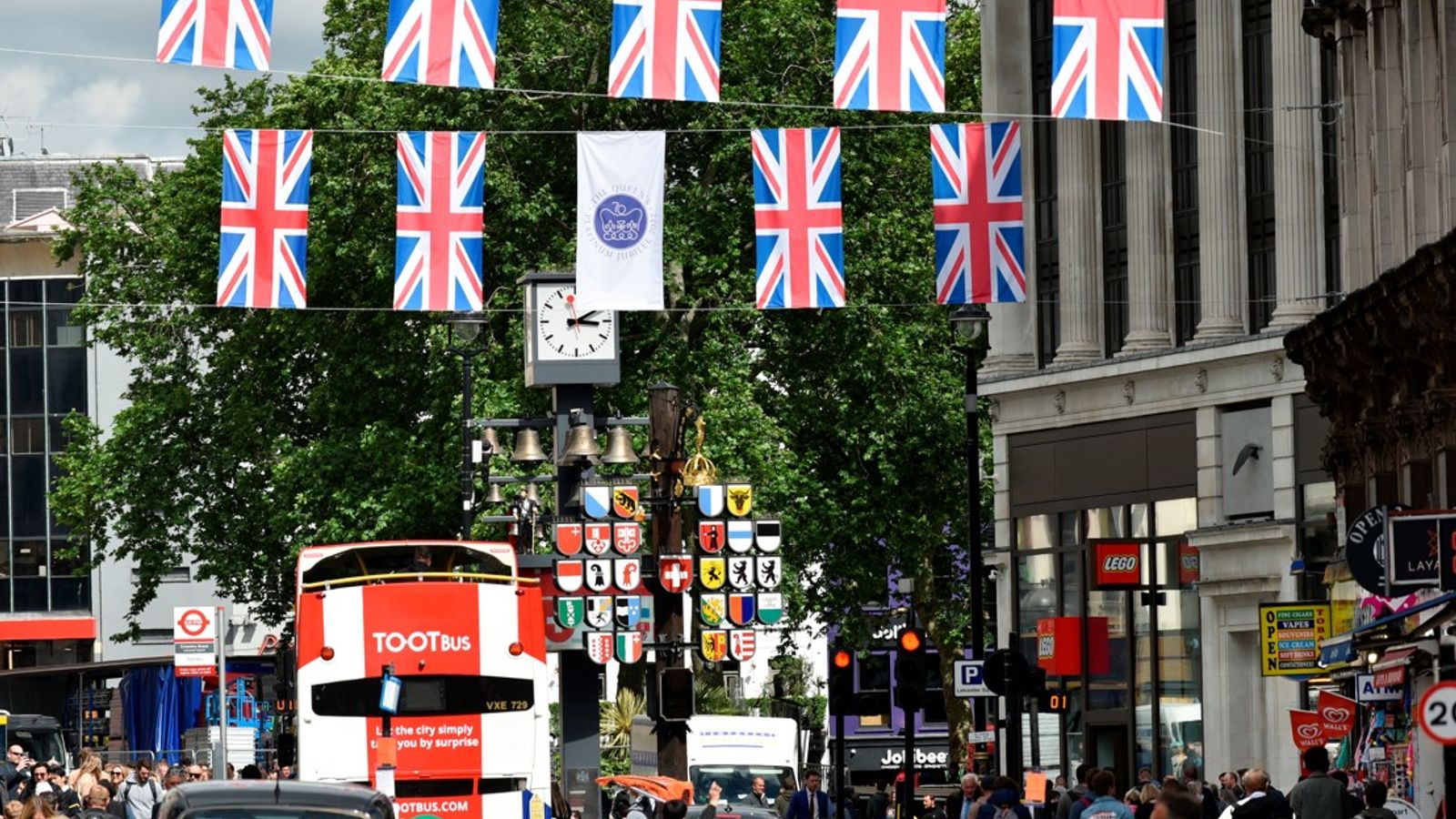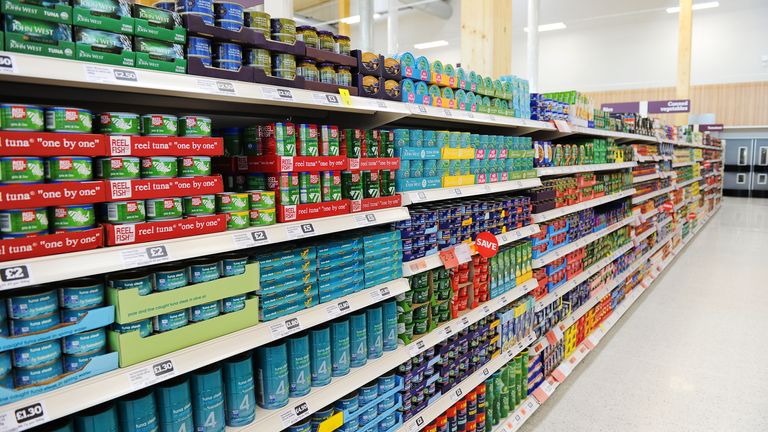Retailers, along with pubs and restaurants, have enjoyed a “welcome boost” from the four-day weekend celebrating the Queen’s Platinum Jubilee, according to two measures of consumer spending.
Early data covering sales and the volumes of people out and about for the public holiday suggested Britons spent heavily on having fun with friends and family following a tough couple of years for stores and hospitality because of COVID restrictions.
This year, the UK’s services-dominated economy has slowed as consumer budgets have become squeezed by the intensifying cost of living crisis.
But figures from the British Retail Consortium (BRC) and Sensormatic Solutions showed footfall over the long weekend rose 6.9% compared with the average for May and was 17.1% up for the full week to Sunday.
The BRC said Thursday was the best performing day, with a 45.6% improvement, versus the May average.
Data from Barclaycard Payments – which accounts for almost a third of all card spending in the UK – backed up the increase.
It pointed to a 41.5% rise in spending at restaurants over the Bank holiday weekend compared to the same period last year.
Spending was up 74.2% at pubs, bars and night clubs, while spending on entertainment was up 67.3% and spending on public transport was up 38.8%, the figures showed.
BRC chief executive Helen Dickinson said: “The public took to the streets for the Jubilee celebrations, with retail footfall enjoying significant improvements over the early parts of the long weekend.
“More people hit the shops, with many on the hunt for Jubilee decorations, garden accessories and new outfits.”
Supermarkets and the pub sector had been among those speaking of their hopes, in advance of the Platinum Jubilee, of strong demand.
Barclays Payments CEO Rob Cameron said of the performance: “Despite wider concerns around the cost of living, the hospitality sector especially will be pleased by this welcome boost having missed out on two years of unrestricted trading.”
However, as official data has shown, the spending spree is likely to be short-lived as households grapple rising inflation – tipped to exceed 10% later this year – driven mostly by unprecedented increases in energy bills across the economy linked to the war in Ukraine.
Data from the BRC for May retail spending, due to be published on Tuesday, is expected to show a fall in May as shoppers tightened their belts amid rising prices across the board.
Fresh Barclaycard data covering the month was also tipped to demonstrate a focus on paying bills for essentials, including energy, while luxuries such as streaming subscriptions continued to decline.
The government announced last month a £15bn package of additional support for households, with a focus on helping the most vulnerable, after the energy regulator estimated that the energy price cap could rise by £830 annually to £2,800 on average in October.


